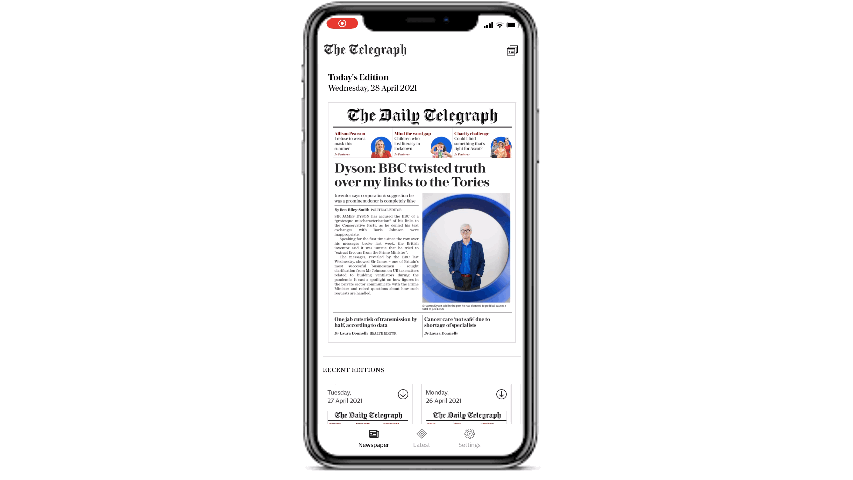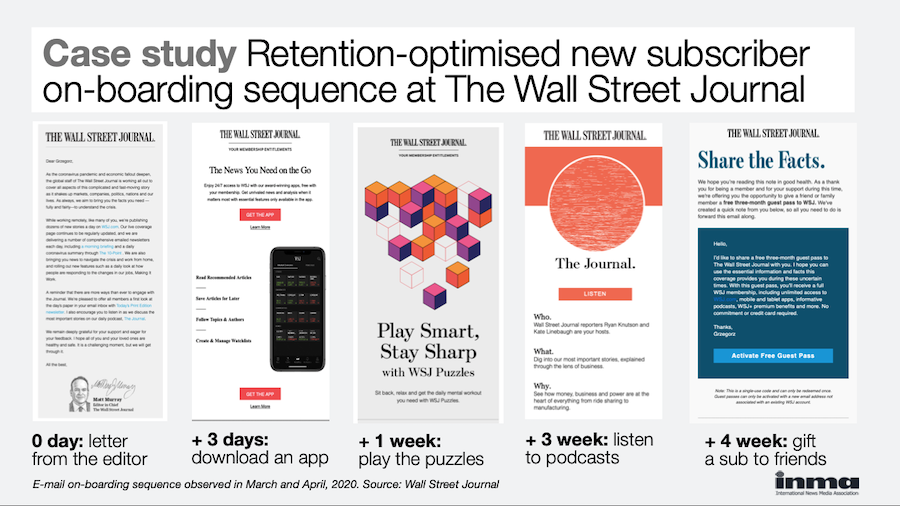Blog
The Puzzling Case of Puzzles
Puzzles have long been a fascination for many working in the newspaper industry. Extremely loved by some readers, they have been the subject of experiments by newspaper publishers across the globe.
We know that puzzles are important for habit formation, but how to transfer their success to the digital world is an area yet to be fully explored. In our latest customer session, we took a deep dive into the role of puzzles for newspapers. In doing this, we shared some best practices from around our newspaper community. Today we bring some examples of puzzle strategies for onboarding, retention and acquisition to inspire you.
Increasing engagement through puzzles and games
Leading French newspaper publisher Ouest-France have long known about the power of puzzles for their digital edition. Their evening edition L’Edition du Soir is designed to help readers relax with lighter content. For this, the large offering of interactive puzzles and games is vital. The team leverages the digital-only nature of the edition to create quizzes based on the days’ news and games such as “spot the difference”.
These offer a digital-first alternative to traditional crosswords, whilst serving the same purpose of driving engagement and habit formation. With more than 5 million monthly readers, L’Edition du Soir has become the most-read digital-only edition in Europe.
In the UK, readers of The Telegraph also find puzzles important. Their newspaper crosswords have a loyal following that facilitate high engagement rates. With the answers being posted in the next daily edition, they drive loyal retention habits. In their latest app built on our NextGen edition platform, readers can play puzzles directly in their daily digital edition. Thanks to the edition archive, they can access puzzles they may have missed or look at solutions for previous puzzles.

Across the ocean, puzzles are also a topic of debate. During our tour of the US last year, it was interesting to hear that the inability to effectively replicate daily puzzles meant that newspaper publishers had left puzzles out of their digital products. Consumers preferred to access dedicated puzzle apps.
For Twipe’s first US customer Advance Local, integrating puzzles in a way that addresses newspaper readers needs was essential. In their new digital edition apps based on Twipe’s Replica and NextGen platform, Advance Local readers have multiple ways of interacting with puzzles. Advance Local readers can interact with puzzles via WebApp or mobile, or simply print specific puzzle sections from their digital edition. This enables subscribers to complete their puzzles as if they had bought the print newspaper.
Puzzle Strategies for Onboarding
The Wall Street Journal took a bold move last year when they introduced puzzles as part of their onboarding journey. They knew that there was a clear correlation between playing puzzles and retention. WSJ saw, however, that less than 1% of their audience had played a puzzle on their platform in the past. The Journal felt that this was a missed opportunity. Therefore, they explored new ways to better expose their puzzles and encourage readers to play.
They also knew how important the first week experience is in retaining subscribers. Through a new revamped onboarding journey, they included an email that encourages reader to play puzzles after 1 week of their subscription.

It was not just retention rates that they saw increase, but this new marketing push has seen engagement rates grow across the whole Journal. As a result of this success, the Journal have increased their puzzle offerings, including jigsaws built on illustrations from articles.
Similarly to the quizzes of L’Edition Du Soir, WSJ used puzzles and games to not just increase engagement with puzzle features but also engagement with news content.
Puzzled-based acquisition strategies
Puzzles can play a key role for newspaper publishers in attracting new subscribers.
Crosswords have always been popular for the New York Times. They have been so popular in fact, there is a well-known case that an NYT crossword was used as a marriage proposal! Following on from the popularity of the puzzles in their print editions, the Times released its’ own Crossword app.
The app benefits from over 500,000 paying subscribers. One of the most interesting outcomes is that it brings a new subscriber base. Over 50% of users of this crossword app do not have a subscription to the digital or print versions of the newspaper. This gives the Times access to an already loyal paying audience whom they can expose to different types of content. The app also drives high engagement with these subscribers through various streak features encouraging readers to play every day.
Getting a paying relationship with a user allows us over time to expand and let them see all the things The New York Times can bring.
Eric von Coelln, Former Executive Director of Puzzles at The New York Times
The Guardian have followed this example. They released their own dedicated puzzle and game app in February 2020. Otherwise driven by their successful membership model, it’s interesting to see The Guardian bringing in a new subscribers product, charging customers £3.49 a month.
The Guardian hope that this app will play an important role in their aim to have 2 million paid supporters by 2022. Through the app, subscribers gain access to 15 crosswords per week, daily sudoku’s and access to a back catalogue of over 15,000 puzzles. One great feature of the Guardian’s app is that users can resume their puzzle on multiple devices.
Since the apps’ release in February 2020, there have been new additions and updates to drive retention and engagement. From December 2020, readers can keep limited access after their free trial ends. These free users have access to a new crossword and sudoku puzzle every day. At the same time, the app introduced a “play together” feature where friends could complete puzzles together, designed to encourage interaction during the pandemic.
Across the publishing world, puzzles remain strong habit formation tools for readers and a little explored innovation opportunity for publishers.
Other Blog Posts

Stay on top of the game
Subscribe to Twipe’s weekly newsletter to receive industry insights, case studies, and event invitations.
"(Required)" indicates required fields

